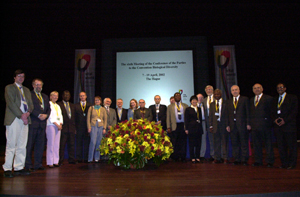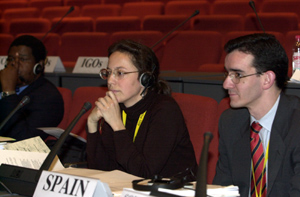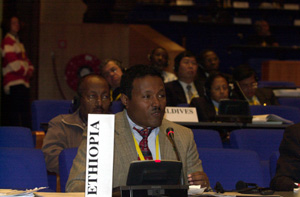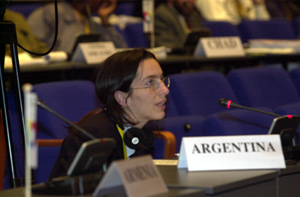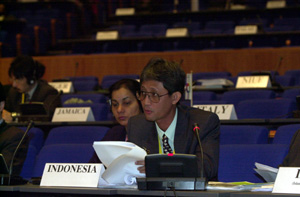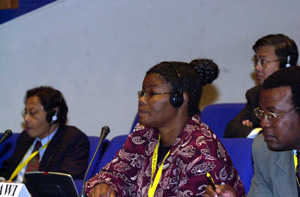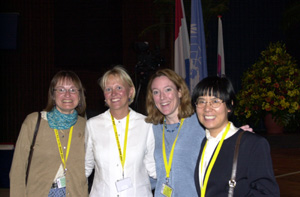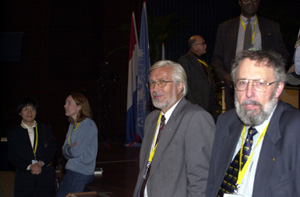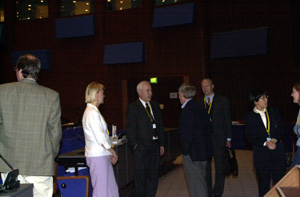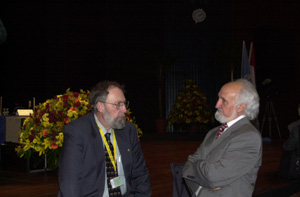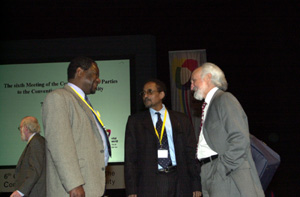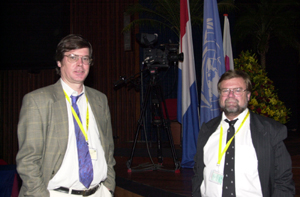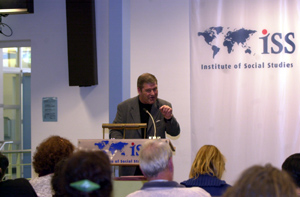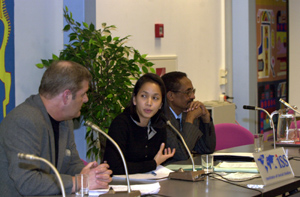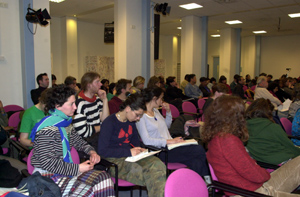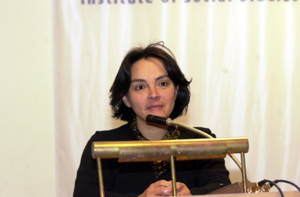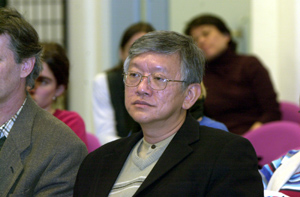Incentive
Measures: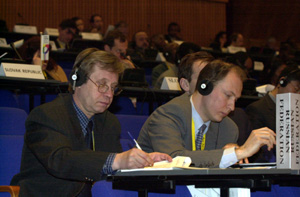 The RUSSIAN FEDERATION highlighted the importance of work on perverse incentives for economies in transition. |
| LIABILITY AND REDRESS: |
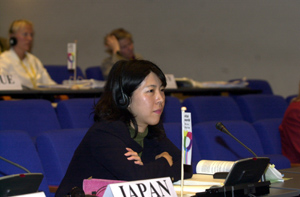 JAPAN said it was premature to consider proposing elements on damage to biodiversity into existing liability and redress regimes, given current lack of information. |
| WORKING GROUP II: ARTICLE 8(j) |
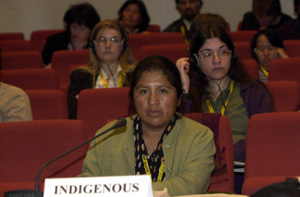 The INTERNATIONAL INDIGENOUS FORUM ON BIODIVERSITY (IIFB) called for support of internationally recognized indigenous rights, including land rights, prior informed consent (PIC), effective participation and protection of intellectual property rights (IPR) according to indigenous laws. |
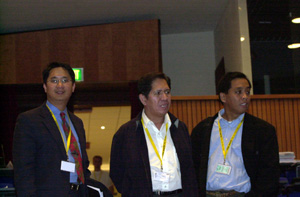 The PHILIPPINES supported work on approaches and methodologies to develop and maintain registries of traditional knowledge. Several delegates cautioned against developing databases without appropriate protection of traditional knowledge. Many prioritized work on sui generis systems. |
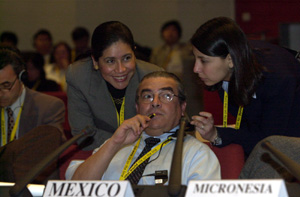 Mexico, on behalf of the GROUP OF LIKE-MINDED MEGADIVERSE COUNTRIES, stated that IPR systems should consider traditional knowledge in evaluating patent applications, including determination of origin. |
| COOPERATION WITH OTHER CONVENTIONS, INTERNATIONAL ORGANIZATIONS AND INITIATIVES: |
| BIODIVERSITY VETERANS SNAPSHOTS: |
|
|
|
|
| SIDE EVENTS: THIRD WORLD NETWORK SEMINAR: BIODIVERSITY IN CRISIS |
|
|
|
|
| The Third World Network convened a seminar "Biodiversity in Crisis" on 14 April as a side event to the CBD COP6. A number of biodiversity experts, scientists, negotiators and activists presented critical issues in biodiversity such as genetic engineering, biosafety, access and benefit-sharing, forests, tourism, intellectual property rights, mining, and the use of biological weapons. The seminar gave the participants an in depth account on how the above issues are presently being tackled or ignored. For more information please visit the Third World Network website. |
| ENB SNAPSHOTS: |
|
Links: The
CBD home page COP-6
Provisional Agenda |PDF|WORD| |
|
|
|| Back to Linkages home || Visit
IISDnet || Send
e-mail to ENB ||
©
2002, IISD. All rights reserved.

